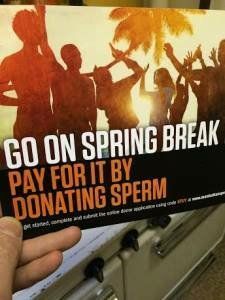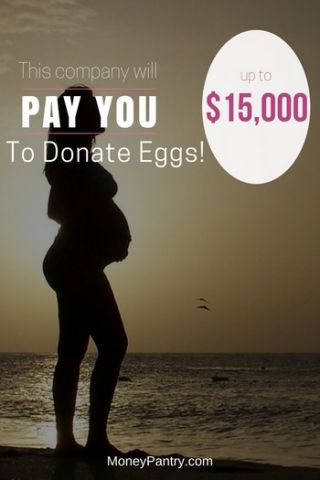Genetics
Egg and Sperm Donors: It's Complicated
Some common thoughts and feelings surrounding selling one's gametes.
Posted April 24, 2023 Reviewed by Kaja Perina
Key points
- Donating/selling one's eggs or sperm is much more than a simple business transaction.
- Most donors are not properly counseled and educated beforehand and their genetic material may be sold for many years or decades into the future.
- Because anonymity is not possible, donors can prepare for connections with offspring.
- Egg donors have unique health risks that are often minimized by clinics.
As a counselor or as a member of a donor family, it is important to understand some of the themes that commonly arise with people who donated (sold) their gametes. Available research and decades of anecdotal reporting reveal the feelings and experiences of these sperm and egg donors.1,2
Why do people sell their gametes?

Becoming a sperm or egg donor is certainly not for everyone. So what exactly draws people to become gamete donors? Not surprisingly, the top reason for donating is for financial gain: egg donors can make $5,000 - $15,000, or more, for a single donation, while sperm donors can make $14,000 - $16,000 or more in the minimum one-year donation contract and many donors donate for many years. The other most common reasons at the top of the list are to help families who want children and to “pass along my genes”.3,4 But, selling one's gametes is far more than a financial transaction, with many far-reaching effects for future decades.
Donor Concerns
There may be frustration about a lack of pre-donation education or counseling and feel that they were not prepared for the possibility of contact with any resulting children born as a result of their donation under a false concept of anonymity.
Curiosity about offspring is very common.5,6 Many donors wonder if their offspring think of them, have concerns about the well-being of children created, and feel frustrated about not being able to know or contact them.4 One study suggested that about three-quarters of donors have feelings about wanting to contact donor children and not being able to; another quarter feels worried about their donor children's well-being.3 Another study showed that ninety-four percent of surveyed sperm donors were open to contact with offspring, with 85% being open to meeting them and 78% open to establishing a relationship with them.4 New research also tells us that a majority of egg donors would like to make contact with offspring and have the means to do so as thousands of donors have made mutual consent contact on the Donor Sibling Registry and via other methods.7
Many are concerned about anonymity. Many donors donated long before commercial DNA testing existed, and more recent donors were not provided with information about commercial DNA companies that could be used by parents and children to find them. Younger donors may be more neutral as many were given a choice of whether to be anonymous for 18 years or forever. Older ones may be more biased towards wanting to meet offspring.3 The ones who favor anonymity may want to protect the donor child's parents from feeling threatened. They may want to protect their own families or their own lying by omission about being a donor and/or having medical issues.
Once donors realize that contact is possible and probable, there can be fear:
- about their parental rights and financial responsibilities (there are none for egg clinic/sperm bank donors).
- about disappointing the offspring or not being successful or good enough as some donors were not 100% honest about their academic backgrounds when filling out their donor profiles and now feel ashamed.
- of being found out that they were not truthful on their donor profile.
- about their relatives being contacted via DNA websites.
- or embarrassment associated with their family and friends finding out that they sold their gametes and/or that there are resulting children.
- or worry about being exposed for their serial donating history, as it's very common for donors to sell their gametes to more than one, or many facilities.4
- of rejection, as many donor-conceived people (DCP) with non-bio parents see connecting with the donor as a betrayal of sorts, and therefore do not wish to establish relationships. DCP protecting their non-bio parents can appear as though they are rejecting the donor.
When a donor attempts to report updated medical information or history that may affect their current or potential offspring, there may be frustration over the dismissive responses and lack of follow-up from their gamete vendor and the lack of guidelines for how to provide this information.6 Donors may feel guilt after finding out about medical issues amongst their donor offspring that they could be responsible for, or shame if the medical issue was something they hid in order to be accepted as a donor.
There may also be thoughts and concerns about the number of offspring that have been created using their gametes. Most egg donors feel that it is important/very important to know the number of offspring born from their donations.3 More than 40% of surveyed egg donor parents say that they were not asked by their clinic to report the birth of their child, so births are grossly underestimated.2,8 There is no entity keeping track of births and because all reporting is voluntary, accurate records are nowhere in sight. Many sperm donors now understand that they were lied to about the limits of the 10 or 20 offspring or families that they were promised and feel overwhelmed by the implications of how many offspring they have, as some have come to find out that they have more than 100 or even 200 donor children. Most sperm donors didn't realize that one single donation can be broken up into between 4-24 sellable vials, so their 2x or 3x a week donating for years can result in a slew of sellable vials. There may be concerns over how large numbers of offspring might demand too much of their time and/or attention and therefore affect their family negatively, especially if their family stability is not on solid ground. Donors may feel overwhelmed and that they (or their spouses) just don't have the emotional bandwidth to deal with dozens or hundreds of offspring.
Many donors are excited to learn about and connect with their donor progeny and reports of donors connecting with their donor-grandchildren are becoming more common.6 Many need some time and patience to figure out how to define these new relationships with their genetic children and their families. Expanding family and creating new family systems can be a bit of a challenge as the process unfolds until relationships become better defined and accepted.

Specific to egg donors
Earlier research suggests that about half of the egg donors feel that their relationship with their offspring is only genetic, while the other half view it as a connection beyond biological.3 More recent 2021 research asked egg donors how they viewed any children who may have resulted from their donations. The most common response (36.2%) was “special designation but not acquaintance, friend, or family” and the second most common was “my biological child” (25.7%).7 There may be fear about how the egg retrieval process might affect their future health and fertility. Several studies have raised concerns about Ovarian Hyperstimulation Syndrome (OHSS), secondary infertility, and cancer risks.1,2
All too often, donors are not properly counseled and educated about the ongoing ramifications for themselves, their families, and any children born: the ones they're raising and the donor-conceived children who will share approximately 50% of their DNA and who may be very curious about their close genetic relatives, ancestry, and medical family history. However, there is now a wealth of information and support for all members of the donor family.
The interests and well being of the children — all of them — are paramount. I believe that I do have responsibilities to the children born as a result of my donations. At the very least, those children have a right to know what my part of their genetic heritage is. I will be more than happy to get in touch, if and when they do desire. I think about them often and wonder who, where, and how they are, and what is happening in their lives. I think, that if one day some of my unknown offspring do make contact with and meet me, it might be – for them primarily and for me too — a wonderful 'jigsaw' experience! The prospect of it actually happening is a little daunting, in some ways. What if they do not like me, or I them? What if they feel unhappy with my having contributed to their creation, but then taken no responsibility for them — especially if they have had an unhappy life? How will my own family react to and view them? On and on my thinking goes. However, at the base of all of this I am quite clear in my mind, that these wonderful children do have a right to know, what they want to know about me — because in them, there is a part of me." — Former donor
References
1. Schneider, J., Lahl, J. & Kramer, W. (2017). Long-term breast cancer risk following ovarian stimulation in young egg donors: a call for follow-up, research, and informed consent. Reproductive BioMedicine Online, 34, 480-485, http://dx.doi.org/10.1016/j.rbmo.2017.02.003 1472-6483
2. Kramer, W., Schneider, J. Schultz, N. (2009). US oocyte donors: a retrospective study of medical and psychosocial issues, Human Reproduction, 24, 3144–3149, https://doi.org/10.1093/humrep/dep309
3. Jadva, V. Freeman, T., Kramer, W. & Golombok, S. (2011).Sperm and oocyte donors' experiences of anonymous donation and subsequent contact with their donor offspring. Human Reproduction, 26, 638–645, https://doi.org/10.1093/humrep/deq364
4. Daniels, K., Kramer, W., & Perez-y-Perez, M. V. (2012). Semen donors who are open to contact with their offspring: issues and implications for them and their families. Reproductive BioMedicine Online, 25, 670– 677, DOI: https://doi.org/10.1016/j.rbmo.2012.09.009
5. van den Akker, O. B., A., Crawshaw, M. A., Blyth, E. D., Frith. L., J. (2015). Expectations and experiences of gamete donors and donor-conceived adults searching for genetic relatives using DNA linking through a voluntary register. Human Reproduction, 30, 111-21. doi: 10.1093/humrep/deu289.
6. Hertz, R., Nelson, M. K. & Kramer, W. (2015). Sperm donors describe the experience of contact with their donor-conceived offspring. Facts, Views, and Vision in Obstetrics and Gynaecology, 7, 91-100
7. Adlam, K., Koenig, M. D., Patil, C., Salih, S., Steffen, A., Kramer, W. & Hershberger, P. E. (2021). The disclosure experiences of egg donors across the lifespan. Poster presented to the annual conference of the Midwest Nursing Research Society (MNRS).
8. Blyth, E., Kramer, W., & Schneider, J. (2013). Perspectives, experiences, and choices of parents of children conceived following oocyte donation. Reproductive BioMedicine Online, 6, 179-88. doi: 10.1016/j.rbmo.2012.10.013.




